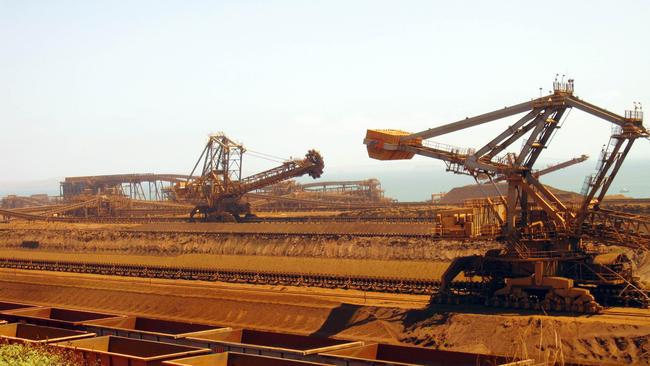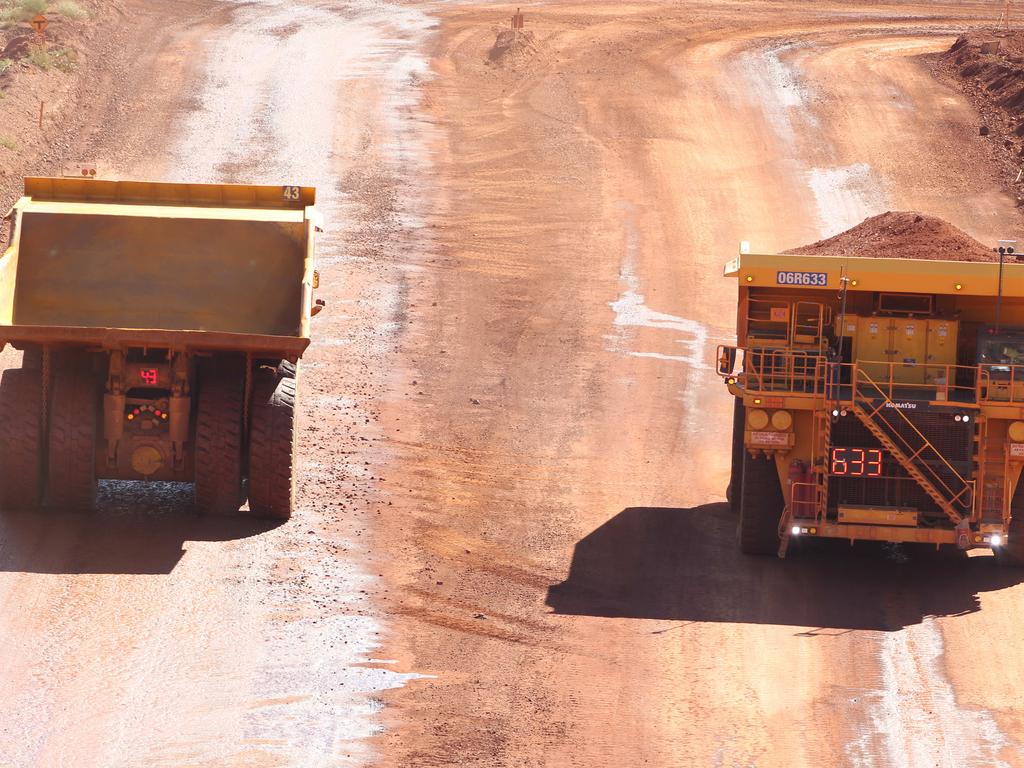Coronavirus: Rio Tinto flies in 700 workers to beat Western Australia lockdown
Rio Tinto has relocated 700 workers from the eastern states and to WA as it tries to keep its iron ore workforce intact.

Rio Tinto has relocated 700 workers from the eastern states and overseas to Western Australia as it tries to keep its iron ore workforce intact in the face of Premier Mark McGowan’s lockdown of the state.
It is understood the resources giant has also made a one-off $3,000 payment to some workers affected by sweeping roster changes that will see its workforce forced to remain on site for at least 14 days at a time, to conform to WA’s coronavirus prevention regime.
Rio has joined BHP in asking fly-in fly-out workers it had previously flown from eastern states to temporarily relocate to WA for the duration of the crisis, confirming on Monday that about 700 workers had agreed to the move.
The workers will be paid a daily allowance to find their own accommodation, and will be required to conform to the state’s quarantine requirements while not on site.
Rio’s move follows a similar call from BHP in response to Mr McGowan’s decision to close the WA borders, taken up by about 300 workers, and comes amid growing concerns that there may not be enough skilled workers in the state to keep its critical mining sector operating if the travel restrictions are maintained for a significant period of time.
It is understood Rio has also required the majority of its contract workforce to adhere to the new rosters.
Rio Tinto Iron Ore chief executive Chris Salisbury said the measures were necessary to keep the company’s workforce, and the community, safe while maintaining production levels.
“We will continue to strengthen measures throughout our operations and at airports to ensure we are doing everything we can to put the health and safety of people first,” he said.
“These measures mean we can keep our operations running, to ensure we continue delivering products to our customers and make a strong contribution to the Western Australian and Australian economies at a very challenging time.”
Rio has also introduced screening, including temperature checks prior to boarding flights to its sites, along with controls at the entrance to each mine and restrictions to movements while at work.
Each site will create “controlled zones”, where no people movements will occur
unless authorised and screened by site supervisors, other than on designated shift
changes.
Rio is also running half-full planes to its mines to conform with social distancing rules, and is believed to have put on dozens of additional flights each month in order to move its workforce — exempted from WA rules preventing movement across internal state borders — to the Pilbara.
All of the state’s major miners have also adjusted rosters, from traditional swings of eight or nine days on, to a minimum of 14 days or more on site at a time.
Fortescue Metals Group has made the most drastic change, switching its 14 day working swing to 28 days, followed by a 14-day leave period to minimise the amount of travel to site.
The company is believed to be paying an additional $1000 bonus per swing to compensate workers for the additional time away from their families.




